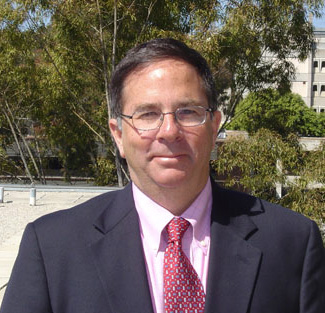Extensive use of antibiotics in medicine and the livestock industry has driven the evolution of drug resistant human pathogens on a global basis. The development of antibiotics with truly novel mechanisms of action is moving at a glacial pace. New approaches to the treatment of multidrug resistant bacterial infections are urgently needed.
On April 27, HIV pioneer and infectious disease researcher Dr. Robert T. Schooley will be at the University of New Mexico School of Medicine to describe his ground-breaking work on a newly “re-discovered” approach to the treatment of bacterial infection in humans: bacteriophage therapy.
Dr. Schooley, Senior Director of International Initiatives and Professor of Infectious Diseases at the University of California, San Diego has been invited to present the 2018 Joseph V Scaletti Catalyst Lecture as part of an ongoing series featuring researchers at the forefront of biomedical research and innovative models for healthcare delivery and education.
Back to the Future
Bacteriophage Therapy for MDR Bacterial Infections
Live Stream starts Friday, April 27 2018 at 12 pm MST (18:00 UTC)
Bacteriophages (literally “eaters of bacteriaâ€) are viruses that attack and lyse bacteria. Originally discovered on the Indian subcontinent shortly after the turn of the 20th Century, they were briefly developed in Europe and the US for therapeutic applications in humans. A lack of understanding of optimal targeting coupled with the discovery of sulfonamides and penicillins shifted attention away from bacteriophage therapeutics in the West in the 1940’s although interest in their use persisted in a number of Iron Curtain countries. We were recently challenged with the need to treat a critically ill patient with a multidrug resistant Acinetobacter baumannii infection acquired during a visit to Egypt who had failed to respond to multiple courses of antimicrobial therapy. Working with colleagues at Texas A&M University, the US Navy Biodefense Research Directorate and AmpliPhi Biosciences under an eIND protocol, we successfully treated the patient with sequential courses of personalized bacteriophage cocktails directed at the patient’s own Acinetobacter baumannii. We have since treated an additional four patients with drug-resistant bacterial infections with personalized bacteriophage cocktails. In the course of this work we have learned about the safety, tolerability, pharmacology, pharmacodynamics and evolution of bacterial resistance to therapeutic bacteriophages. Although our anecdotal experience has been quite positive, rigorous controlled clinical trials are required to fully understand the promise and challenges facing the evolution of bacteriophage therapy of human infections.
—
Robert T. Schooley, M.D. is Professor of Medicine in the Division of Infectious Diseases, the Vice Chair of the Department of Medicine and the Senior Director of International Initiatives at the University of California, San Diego.
 Dr Schooley began his research career studying the immunopathogenesis of herpesvirus infections in immuno-compromised patients but shifted his focus to AIDS in 1981 when the first cases of this syndrome began to appear in Boston. His research group was among the first to delineate the humoral and cellular immune responses to HIV infection. Over the next 15 years he became increasingly involved in the discovery and development of antiretroviral chemotherapeutic agents including reverse transcriptase inhibitors, protease inhibitors and entry inhibitors. During his tenure as Group Chair the NIAID’s AIDS Clinical Trials Group (ACTG) expanded to include research sites in Latin America, the Caribbean, South Asia and Africa and is now the largest and most productive multinational clinical and translational research organization focusing on the pathogenesis and therapy of HIV and its complications.
Dr Schooley began his research career studying the immunopathogenesis of herpesvirus infections in immuno-compromised patients but shifted his focus to AIDS in 1981 when the first cases of this syndrome began to appear in Boston. His research group was among the first to delineate the humoral and cellular immune responses to HIV infection. Over the next 15 years he became increasingly involved in the discovery and development of antiretroviral chemotherapeutic agents including reverse transcriptase inhibitors, protease inhibitors and entry inhibitors. During his tenure as Group Chair the NIAID’s AIDS Clinical Trials Group (ACTG) expanded to include research sites in Latin America, the Caribbean, South Asia and Africa and is now the largest and most productive multinational clinical and translational research organization focusing on the pathogenesis and therapy of HIV and its complications.
His current research interests include bacteriophage therapy, HIV and HCV pathogenesis and therapy and infections that cause morbidity and mortality in resource limited settings. Working with Dr. Emilia Noormahomed, he (together with Drs. Benson and Smith) provides leadership to the UEM-UCSD Medical Education Partnership Initiative.
—
Each year, the Joseph V. Scaletti Catalyst Lecture series features scientific breakthroughs by a biomedical researcher at the forefront of biomedical research and education. Everyone is welcome to attend!
 Friday, April 27, 2018
12:00 pm – 1:00 pm
Domenici Center Auditorium
University of New Mexico Health Sciences Center
Â
Friday, April 27, 2018
12:00 pm – 1:00 pm
Domenici Center Auditorium
University of New Mexico Health Sciences Center
Â